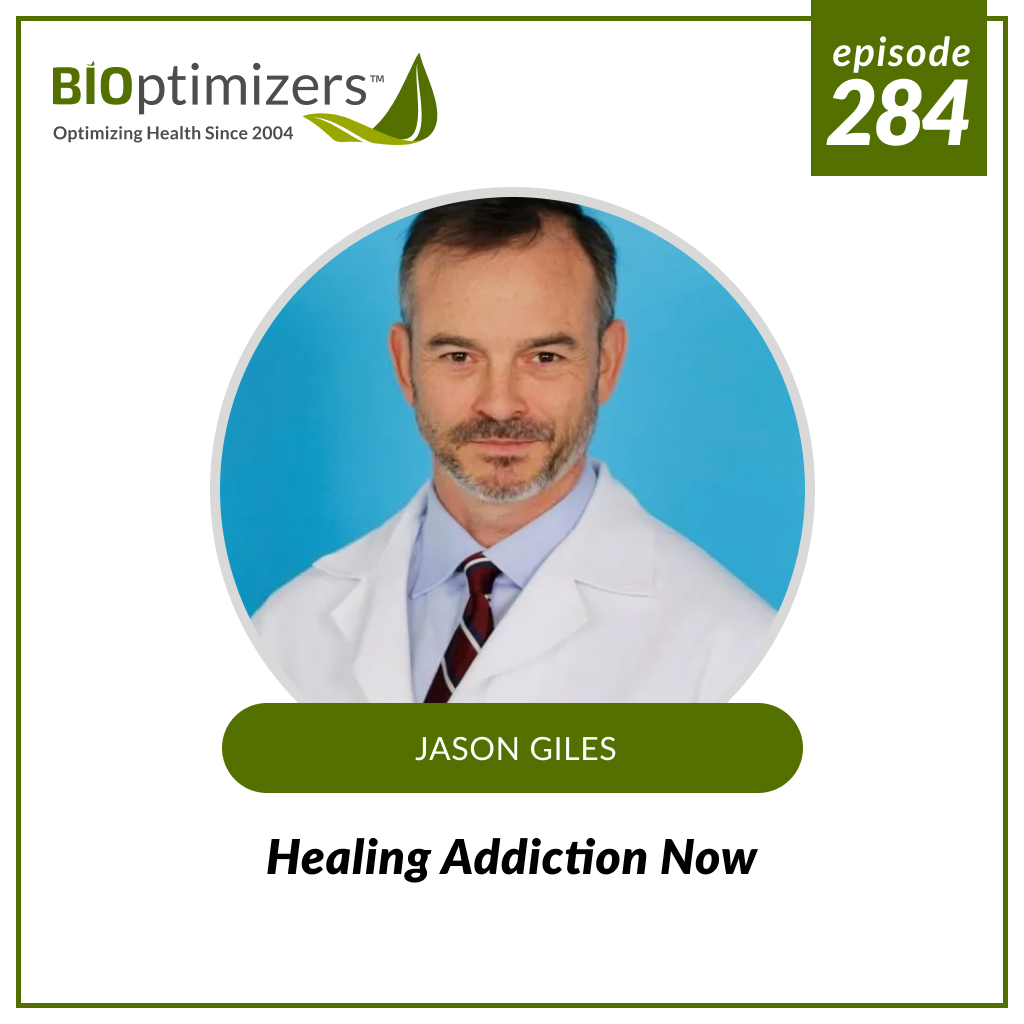284: Healing Addiction Now – with Jason Giles

Dr. Jason Giles, a board-certified addiction medicine expert, former anesthesiologist, and a person who has personally battled and overcome substance addiction, recently appeared on the *Awesome Health Podcast* by BiOptimizers. With over 27 years of medical experience and leadership in managing 40 addiction treatment centers, Dr. Giles offers an honest and compassionate view into addiction and recovery.
Addiction isn’t just a medical condition, but a human challenge impacting all facets of life, from drugs and alcohol to screen time and food. These behaviors often serve as emotional coping mechanisms, hijacking the brain’s reward system and substituting pleasure for well-being.
Modern Addiction Triggers
Substance use is not new, but the availability and potency of substances and stimuli have changed. Modern addictions are amplified by 24/7 access, social pressures, and chemically engineered substances that overstimulate neurotransmitters like dopamine and norepinephrine. Addiction isn’t a lack of willpower, but a rewiring of the brain.
Substance use builds tolerance, creating a cycle of withdrawal, craving, and temporary relief. “Addiction is when we begin treating withdrawal with the very thing causing the problem,” says Dr. Giles. This makes addiction chemical, emotional, and behavioral.
The Journey Through Addiction
Dr. Giles simplifies addiction into three stages: Fun, Fun with Problems, and Just Problems. It begins as an enhancement, then consequences mount, and eventually, the behavior continues despite harm. This trajectory isn’t limited to substances, as emotional eating or overworking can follow the same path.
Raised in an alcoholic household, Dr. Giles became a successful anesthesiologist, but carried an internal void. Medical access led to experimentation, and Fentanyl became his drug of choice. An intervention led him to a recovery program with a 95% success rate.
Redefining Recovery
Detox is only the first step. True recovery is slow and non-linear. Dr. Giles believes in meeting patients where they are, using medication to ease withdrawal and building trust. Many team members are in recovery themselves, creating supportive environments. When the pandemic hit, Dr. Giles led in telehealth for addiction care, reducing relapses and shortening the gap between treatment and reentry.
Emerging therapies, like GLP-1 agonists and TMS, offer hope, but long-term change requires behavior shifts. Anyone can struggle with addiction, and everyone deserves a path out. “We have to stop treating people like problems and start treating them like people,” says Dr. Giles.
In This Podcast You’ll Learn…
- The three stages of addiction and how to identify them.
- Why modern society amplifies addictive behaviors.
- How Dr. Giles overcame his own addiction.
- Emerging therapies for addiction treatment.
- The importance of compassion in addiction recovery.
EPISODE RESOURCES:





